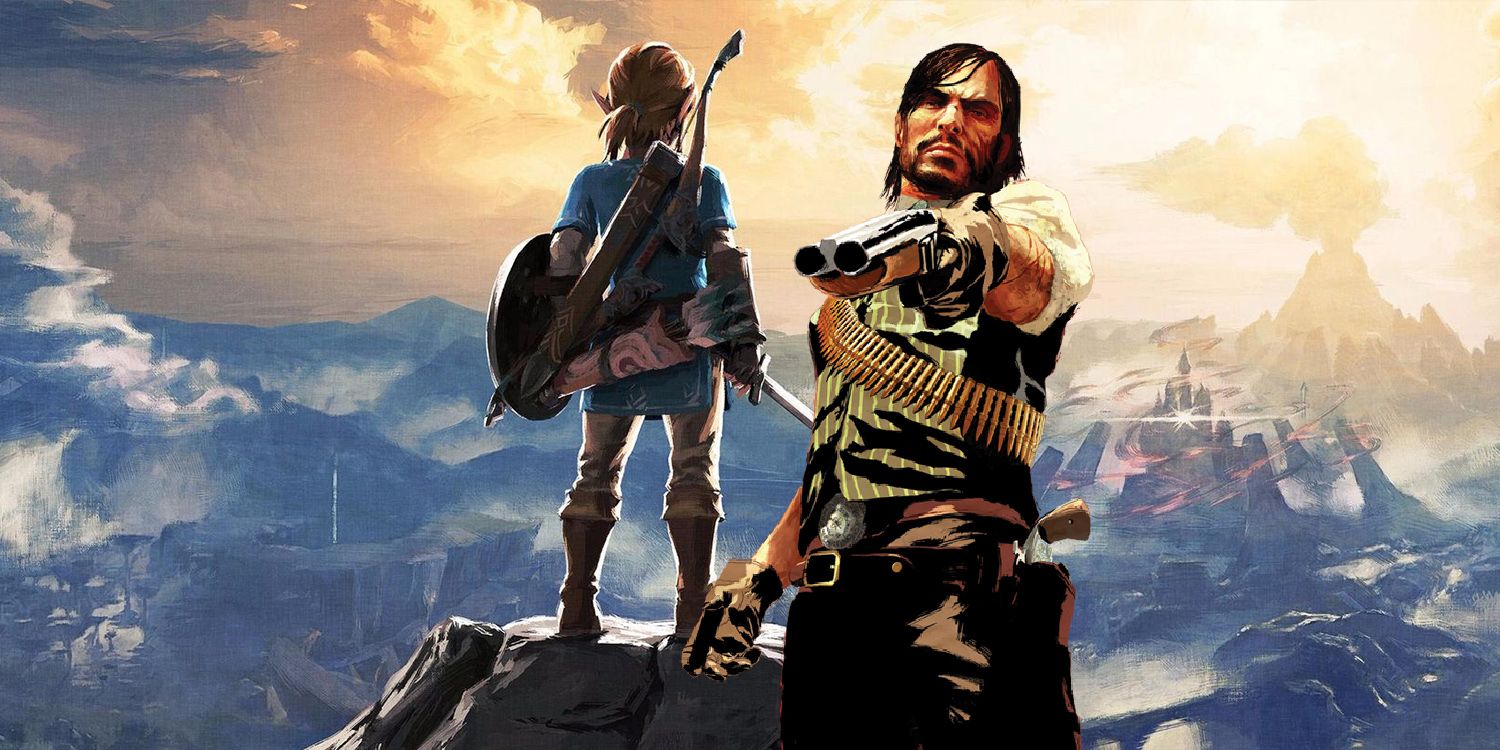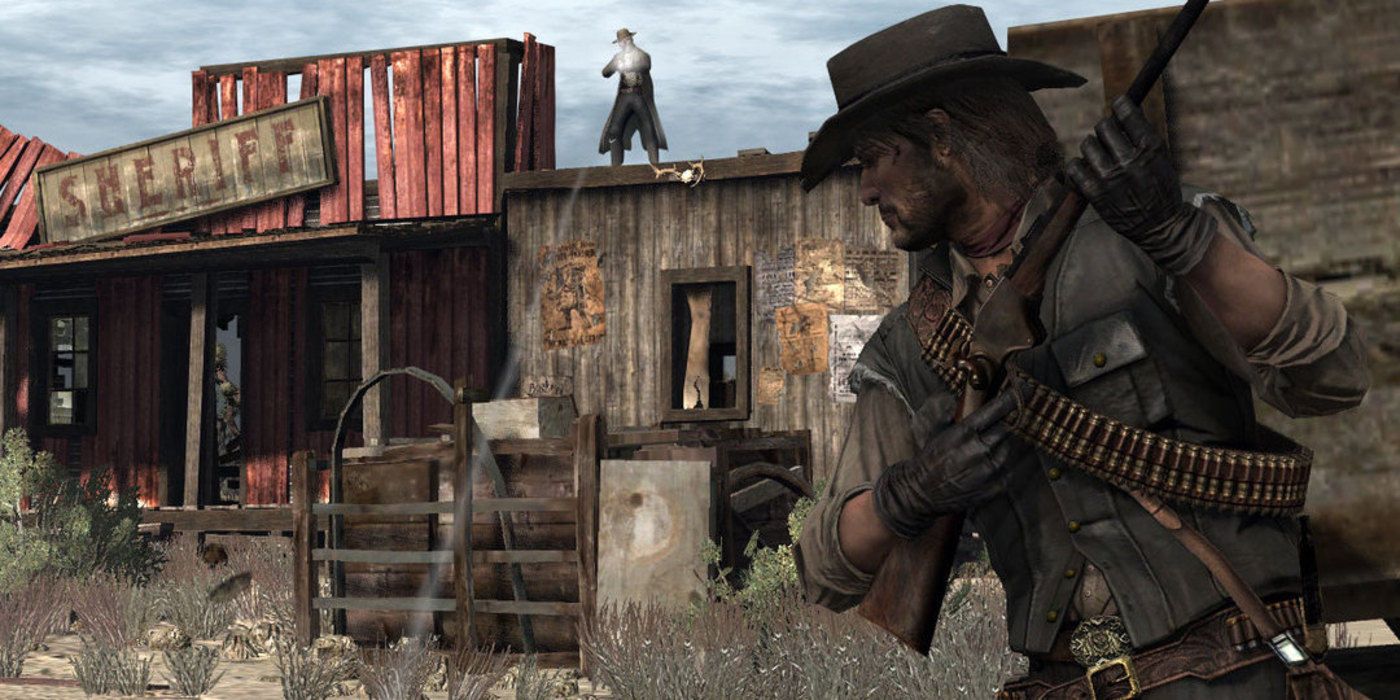Ten years ago, players loaded up Rockstar's Red Dead Redemption for the first time on their Xbox 360 or PlayStation 3. Many would have expected Grand Theft Auto with horses and revolvers replacing the usual sports cars and machine guns, but instead were met with a breathtaking and often heart-wrenching journey through the Wild West that would forever change open world video games - if not video games as a whole. Its influence is still felt a decade out from its release, including in one of the greatest games of this console generation: The Legend of Zelda: Breath of the Wild.
What Red Dead Redemption did differently from other open world games of the time, like Grand Theft Auto, The Elder Scrolls IV: Oblivion, and Infamous was its approach to the game world. Earlier games used their settings to hold missions, collectibles, and NPCs, but Red Dead Redemption made exploring its world not just a major gameplay mechanic, but connected it to the the soul and message of the game itself.
John Marston can't whistle for a taxi, he whistles for a horse that could take him across the entire map without a word spoken or person seen. Gone were the licensed soundtracks blasting from car radios: music in Red Dead takes a startlingly minimalist approach, mainly consisting of small bursts of melody between long moments of complete silence beyond the constant rhythm of your horse's hooves and the occasional cry of a hawk. The sparse soundtrack lets players take in the world and even reflects where they are: distorted guitar riffs for the harsh sands of the Texan desert, mariachi trumpet fanfares for Mexico.
The soundscapes bleed into one of the best lessons Red Dead Redemption brought to open world games: instead of building the world around the player, drop the player into a world. This is what Breath of the Wild gets right better than any other open world game to come before it. Like Red Dead, the latest Zelda brings fans into an expansive world which isn't densely populated - at least not by friendly creatures - outside of a handful of villages spread out across the map. The magic of BotW comes from the awe of discovery, and the journey to get there. A player could set a marker to a shrine they saw from a distance, and on the way find a puzzle for a hidden Korok seed, ride across some rocks that turn out to be a monstrous golem, and save a hiker from some bokoblins, who in turn tells me about dragons in the area. Of course, the player could have already run into those dragons: the world is fully realized, and it's up to the player to experience it as they wish.
These little interactions in the margins were what made Red Dead Redemption stand out when it released ten years ago, and its influence was immediately felt. No two playthroughs of RDR can be the same, and likewise for Breath of the Wild; along with Skyrim, they are perhaps the three most definitive open world games of the 2010s, each expanding on their predecessors to take player freedom to new limits. It's no surprise that RDR's sequel is an influence on Breath of the Wild's upcoming sequel. Game worlds will never be the same after Breath of the Wild, but that's only because they were never the same after Red Dead Redemption, too.


